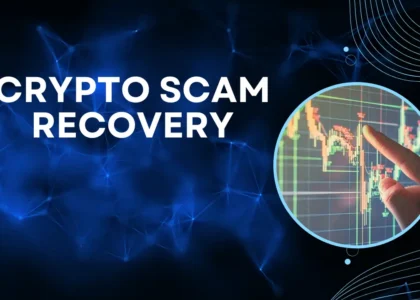This Is The Major Question The Essay Aims To Answer, And It Will Be Fully Discussed What Has To Be Done To Answer It
The First Step Is To Let Your Bank Know And Request Help:
1. Gather As Much Data As You Can On The Scam:
How Do I Get My Money Back From A Scammer – If the con artist tries to deceive you via email, save copies of any emails they supplied you so you can refer to them later.
- In the event that a con artist attempted to defraud you in person, take care to call the police immediately. This will make your account of your dealings with the con artists seem more believable and sincere. Keep the original letters as well; don’t only rely on printed copies, be sure to do so. Investigators looking to identify con artists often find the information in the email headers to be helpful.
- Make copies of every message the fraudster sends you if they attempt to contact you by a different medium, including mail, text messages, or social media. Similar to how emails are stored, the originals should also be retained.
- Keep a notebook in which you may note your interactions with con artists as well as the sums of money they have asked you for. For this, you can use receipts, credit card statements, or bank information. Even if you are doubtful of the con artists’ identities and whereabouts, provide all the information you can.
2. Call The Customer Support Line For Your Bank Or Credit Card Provider:
As soon as you become aware that you are a victim of fraud, contact your bank or credit card provider. Refunds can be given for payments in full or in part.
- A customer support phone number could be printed on your credit or debit card. Within 30 days of the transaction date, your bank or credit card issuer often has to be alerted. Frequently, operators are on call around-the-clock for these lines. When you’ve selected your automated response to every query, you need to click “report fraud.”
- It’s possible that your bank or the organization that issued your credit card has a specific fraud line. Check out the business webpage. You can finish your financial transaction if you go to a branch during regular business hours.
3. You Should Notify Your Bank Or The Business That Issued Your Credit Card Of The Theft:
How To Recover Money From A Scammer – Maintain your composure and recount the events of the con in chronological sequence. Include as many details as you can, such as the transaction’s date and price. If there were several transactions, you’ll need to be ready to give an explanation for why you chose to keep on giving the con artists money.
- You need to write down the name of the customer service agent you are interacting with as well as any wearable identification numbers you get. Request their direct number so you may call them at a later time if necessary. Verify your records to ensure you’re adhering to the submission requirements.
- It is wise to request written confirmation of the incident. As soon as you get a response to your letter, keep this in mind and write it down.
4. You Must Provide Any Additional Information Requested By Your Bank Or Credit Card Company:
You should have the scam investigated by your bank or Credit Card Company. The possibility exists that the funds will be credited to your account right away. Staying in touch is the only way to make sure you get your money back.
- The police report might be requested by your bank or credit card Company, for example. It would be ideal if you could deliver it in person to a nearby branch.
- Send copies of all letters you send to your bank or credit card Company, together with the caller ID information, call time, and date of any phone calls you make.
5. Follow Up With Them If 30 Days Have Gone by And You Haven’t Heard From Them:
US law stipulates that the bank or Credit Card Company must recognize your complaint and begin an inquiry within 30 days of your initial contact with them. The legal systems of the UK and Canada are comparable, among other things.
If a month goes by with no changes, call the customer support number to inquire about the status of your grievance.
- If the bank or credit card firm rejects your appeal, you can consult a consumer protection lawyer to learn more about your choices; however, consumer protection guidelines only provide 90 days of consultation, or the earlier of the two, in such cases.
- You can see a consumer protection attorney to learn more about your alternatives if the bank or Credit Card Company rules against you.
6. If Your Request Is Turned Down, You Should Officially Complain To A Government Body:
How Do I Get My Money Back From A Scammer – If you can prove beyond a reasonable doubt that you were a victim of fraud, the law can oblige your bank or credit card issuer to return the money.
You might be able to get your money back with the aid of governmental organizations that defend consumer rights if your bank or credit card issuer is reluctant to assist.
- Visit https://www.consumerfinance.gov/complaint to lodge a complaint with the US Consumer Financial Protection Bureau (CFPB). Following receipt of your complaint, your bank or credit card provider has a set amount of time to react. Most of the issues are handled within two weeks.
- You should speak with a lawyer about the possibility of suing your bank or credit card Company to get your money back. For you to weigh your options, the majority of consumer lawyers provide a free initial consultation.
Contact Law Enforcement As An Alternative
1. Make A Call To The Local Police Department:
How Do I Get My Money Back From A Scammer – To report a crime, dial any police station’s non-emergency phone number at any time. You might need to call a specific number in order to report financial crimes, such as fraud, to a variety of important organizations.
- The phone number for your neighborhood police department in the US may be found by going to https://www.usa.gov/local-governments and selecting your area from the drop-down box.
- If you do not think that your life is in urgent danger, it is not a smart idea to call 911 to report a scam.
2. Gather Any Evidence That The Scam Is Genuine:
If you are able to provide the local authorities with proof of your dealings with the con artists, they will be more inclined to check into the case.
If your local law enforcement finds the con artists, you can be eligible for compensation from the criminal court system.
- In order for the investigators to identify con artists, please be as descriptive as you can. Keep any screenshots or other proof that the hoax was conducted online, along with real digital copies of any emails and communications involved.
3. Bring Up This Situation With The Local Police And Offer To Assist:
Try to keep your comments brief and direct while dealing with an officer. If you don’t have any concrete evidence to back up your suspicions. Say away from assuming anything about the con artists’ identities or motivations.
- Be careful to retain a note of the officer’s name and service number who approved your request. The police officer will provide you with a report number in addition to that. Make sure to receive a copy of the report as soon as it is finished since you will need it.
4. Select A Reliable Printed Report:
Make careful to print copies of any written reports you get as soon as possible. If a written report is necessary, the officer who collected your report will inform you when it is ready. You might need to return since you might pick up the report from the station.
Your bank, another governmental agency, or the company that issues your credit card may request it from you.
5. Let Consumer Advocacy Groups Know About The Scam:
Governmental agencies accumulate information on con artists and are permitted to submit complaints to [email protected] in order to swiftly pursue money-recovery claims against them. Depending on the sort of fraud, several governmental entities at the federal, state, and local levels may get involved.
- The anti-fraud units of the state attorneys general in the US conduct their own investigations. And work to bring legal actions against con artists all around the nation. For instance, to support complaints against con artists in the US, the Federal Trade Commission (FTC) conducts inquiries and compiles data. You could be eligible to receive part of your money back if you sue the FTC or come to a deal with them. Use the FTC’s online complaint form to submit your complaint.
For information on how to submit a report or complaint, go to the attorney general’s website in your state.
6. Participate In Any Current Investigations:
You could be entitled to criminal restitution to get some or all of your money back. If the scam artists are found and put on trial. However, the inquiry carried out by the authorities could be scant. If they are successful in locating the offender, however, they can invite you to a meeting or request that you testify in their place in court as a witness.
- You will only be able to get your money back if you can show that you sent it to the scam artists, so keep any receipts, bank or credit card records, and other payment-related documents.
“How Do I Get My Money Back from a Scammer?” We really hope the details on this page enabled you to identify the answer you required. These are the methods that we advise.
Source: https://cyberscamreview.com/









